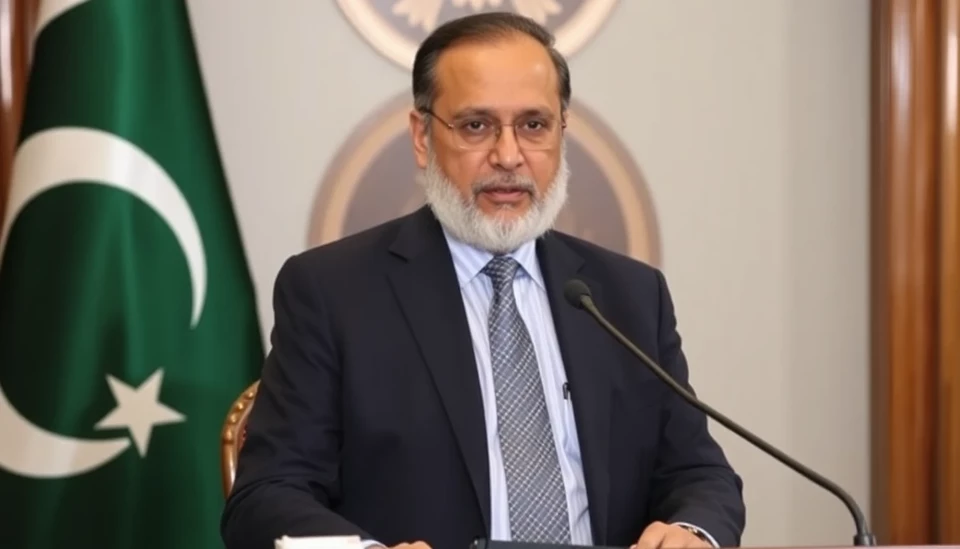
In a decisive move to comply with the demands of the International Monetary Fund (IMF), Pakistan is striving to implement necessary reforms aimed at financial stability without imposing additional taxes on its citizens. The country's Finance Minister, Ishaq Dar, has reassured the public that discussions with the IMF are ongoing, targeting a mutually beneficial agreement that avoids further financial strain on taxpayers.
This approach emerges as a vital response to the economic challenges that have plagued Pakistan in recent years, primarily due to rising inflation, dwindling foreign reserves, and a significant fiscal deficit. The current administration is under immense pressure to meet the IMF's conditions, which are crucial for unlocking much-needed loans that would help stabilize and revitalize the country’s economy.
Analysts suggest that the government is exploring alternate measures that do not involve additional taxation, such as cutting unnecessary expenditures and improving the efficiency of public services. The emphasis is on enhancing revenue collection by tackling issues such as tax evasion and expanding the tax base rather than increasing tax rates.
Efforts to engage in structural reforms are viewed as essential for not only securing the IMF deal but also for fostering sustainable economic growth. The government is keen on creating a more robust economic environment that encourages both domestic and foreign investment, thereby facilitating job creation and improving living standards.
Dar has urged policymakers to remain committed to fiscal discipline and implement measures that ensure long-term economic resilience. The Finance Ministry is also considering the possibility of adjusting utility rates, but any increase will be carefully managed to mitigate backlash from the public that has already faced significant economic hardships.
The Pakistani government understands that the path to economic recovery is fraught with obstacles but remains optimistic about striking a deal with the IMF. The administration is aware that maintaining social peace is essential, especially when imposing such economic measures, thus avoiding further burdens on the average taxpayer is a priority.
In conclusion, Pakistan's ambition to fulfill IMF expectations without placing extra financial burdens on its citizens showcases a careful balancing act. As the nation continues to navigate these challenging waters, the government's readiness for impactful reforms coupled with fiscal prudence becomes paramount for economic stability and growth.
#Pakistan #IMF #EconomicReform #FinanceMinister #Taxation #FiscalResponsibility #EconomicGrowth
Author: Daniel Foster




